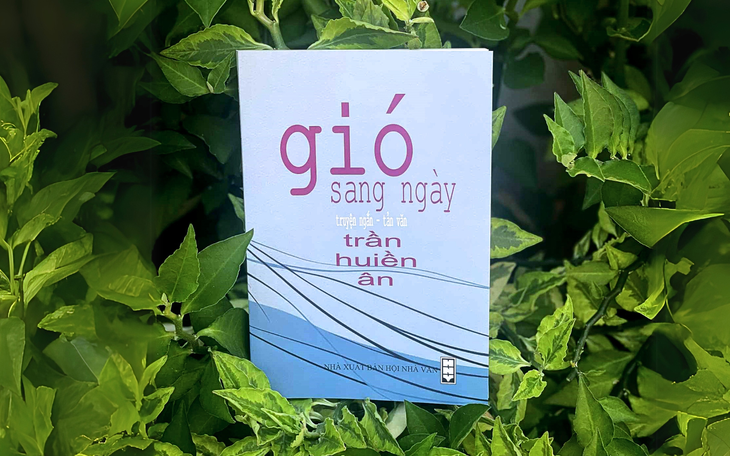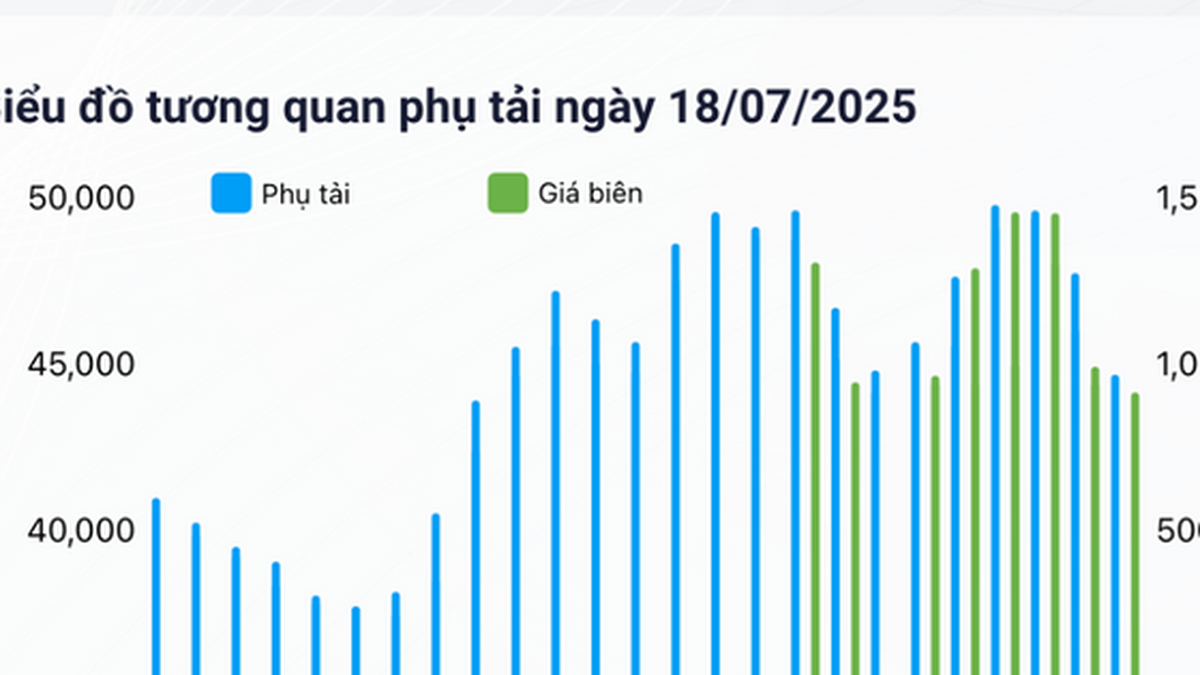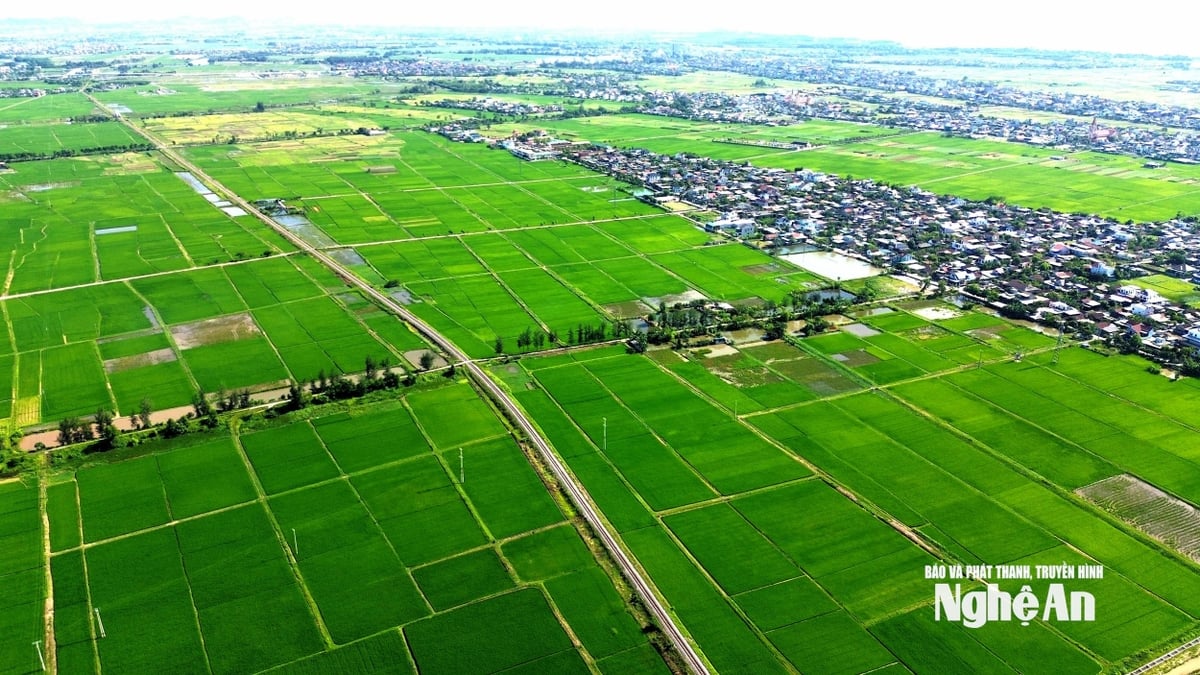
Wind of the Day - a collection of essays and short stories by writer Tran Huyen An has just been published - Photo: VU HUYEN
Reading poetry and story collections is like attending a banquet with many delicious dishes. If someone touches a dish with chopsticks many times, it is not necessarily the most delicious and eye-catching dish on the table!
Sometimes it's simply that the dish suits your taste or evokes a familiar feeling or awakens an image or memory...
End of year go paint panels
The end of the year painting panels is not the best in Wind of the Day . The literary language in this essay is not rich in images and full of feelings when reminiscing about a childhood, about a sweet and gentle love story or rich in impressions of the red color in the season of vông flowers, the blue color of the sky and the color of leaves in the short story An phan mau xanh that the author chose to print at the beginning of the book...
Such comparison also serves to explain the reason why I stopped at this essay in the collection for so long. I have a habit of starting from the work printed at the end of the collection when reading the collections of stories by the authors.
Neither political nor lyrical, just a mere 6 pages of 13x19cm, with only a natural and simple narrative style, the essay evokes many ideas when touching on a memory that has receded for nearly half a century in people of the same time and situation...
I - the narrator in this essay - told that when I was young, in elementary school, I had a talent for drawing.
But when he grew up, he did not pursue a career in painting but became a teacher. Then, circumstances forced him to pick up a brush again, not for art but to ease the hardships of making a living.
In the book "Drawing Panels at the End of the Year" tells the story of the author and several artists who went to draw propaganda posters for cooperatives during the days before Tet. It was a picture of national solidarity with images that have become formulaic with the quartet of characters: workers - farmers - soldiers - intellectuals.
The author lets the farmer question when he sees his image illustrated there: "Why don't you draw us with cars and houses, at least with a roaring engine, always forcing us to carry hoes and sickles, standing in the rain and sun in the fields?"
Is it true that at that time, when having to hold a pen to write bland and empty pages of literature to "correctly" earn a living, artists who are responsible to society and have self-respect always struggle when thinking about the authenticity of art. There, literature and art must touch the depths of people's thoughts and aspirations?
Leaves are enough, why wait for flowers?
During the end of the year panel painting , someone who knew the painter was a teacher disagreed when the deputy director of the cooperative called him "worker".
The person called the painter is not sad because when teachers - even painters - have to hold brushes and paint emotionlessly on propaganda billboards to earn a living and raise their children, being called a painter is not wrong.
With these details of the story of drawing panels on the days before Tet, does the writer want to think with the readers about the theory of legitimacy?
There was a time when titles became a mess because of the desire for fame. And I understand the meaning of a writer who is not very interested in titles when introducing himself on the covers of the books he has written. Tran Huyen An only talks about the things in life: teaching - writing - researching (with more than 40 published works).
Suddenly I thought of a kind of agarwood in the deep forest and the vast life, suddenly remembered some thoughts of Che Lan Vien about form and content: Fragrant leaves picked when old/ Pick leaves with the scent of thoughts/ When the tree has turned into agarwood in its core/ Enough leaves, why wait for flowers?
I like the cool breeze at the end of the essay. There was a time when teachers, intellectuals, and artists had to work as laborers to make a living or had to laugh and cry at the situation of losing their teachers and workers, but there was never a word of complaint or blame for their fate, just as light as the spring breeze:
"Oh, every New Year's Eve in my life, rain or shine, I still feel life is so light, my mind and body are so light, I think I can spread my wings and fly high."
A few random lines about an essay as if to continue the conversation with the author, with friends. I wonder if there is any resonance from the messages that the writer has sent from his narrative essay?
And the simple, honest words like young potato leaves are just the thoughts and doubts of the farmer in the essay when looking at the image and position of the intellectual in the painting:
"Intellectuals are knowledgeable people, they must stand at the forefront, they must rush forward to guide people, why are they shyly hiding behind? (He hesitated). But wearing white glasses and holding books, is it certain that they are intellectuals?"
Source: https://tuoitre.vn/du-tiec-tan-van-voi-tran-huien-an-20250619084609368.htm

































































































Comment (0)